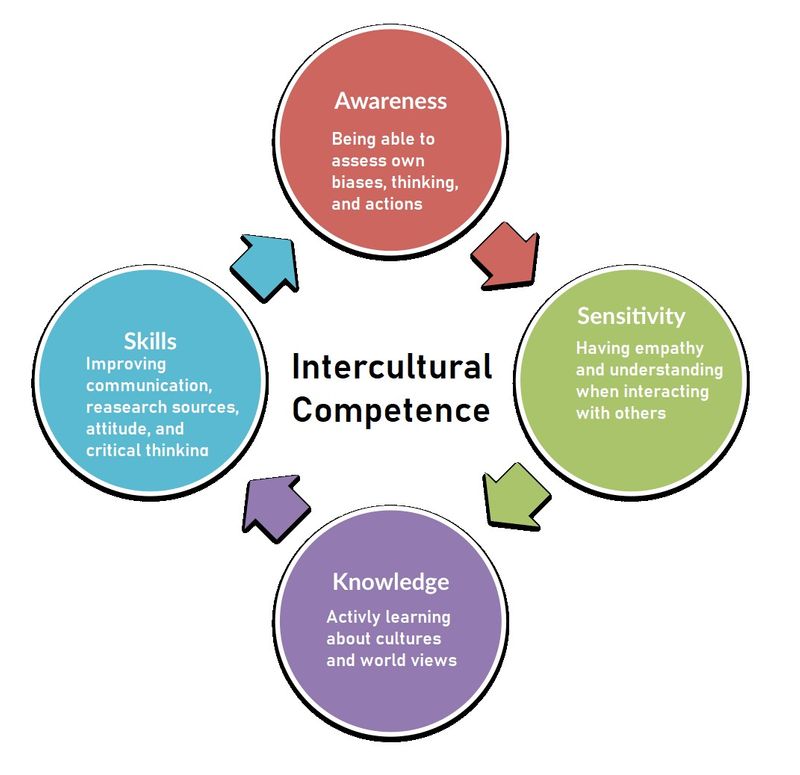
Everyone has their own perspective, or way of looking at the world.
These perspectives are formed by your environment, culture, and involvement with other people.
They can be influenced by geography, race, and socioeconomic status as well as many other factors.
A group — in education or any environment — is stronger when people with diverse perspectives interact and communicate effectively.
A syllabus is a document that tells you about a course, including the work, resources, and methods used for learning.
There are clues on the syllabus that help you to see if the course includes diverse perspectives on the course topic.

Intercultural Competence
Understanding and respecting diverse perspectives is linked to intercultural competence. A person with intercultural competence has:

Quiz
A manager is dealing with a problem in their department. Which of the following problems is MOST LIKELY to be addressed by the development of intercultural competence?
Benefits Of Intercultural Competence

People with intercultural competence are more likely to:
communicate effectively with others
consider other people’s perspectives
respond with respect
listen to ideas
adapt to change
Including diverse perspectives is important for learning because it:
improves critical thinking
prepares students to be citizens
promotes creativity
builds social competence

How Can I Tell If A Course Covers Diverse Perspectives?
Look at the readings, activities, and policies of the course. Do they:
represent different cultures or experiences?
ask students to learn about other's ideas, perspectives, and experiences?
encourage students to evaluate and understand their perspectives on the content?
include language about respecting other’s beliefs in discussions?
ask students to consider the same issue from multiple points of view?
use readings from multiple authors from different backgrounds on the topic?
Check for activities that:
support perspective-taking from different points of view
introduce other cultures and expectations
negotiate common ground and goals
encourage exploration of new ideas and experiences

Quiz
Which of the following courses is most likely to include diverse perspectives? One that focuses on:
Subscribe for more quick bites of learning delivered to your inbox.
Unsubscribe anytime. No spam. 🙂
Take Action
Does your course syllabus take into account many perspectives? Are there:
If not, consider talking to your professor and making some suggestions for better representation.

Remember, developing intercultural competence is not just for the classroom — it's a valuable skill in your personal, social, and career lives! The first step is exposure, which can happen through the classroom, but mastering this skill is lifelong learning!
images by Geralt on Pixabay.com
Your feedback matters to us.
This Byte helped me better understand the topic.
